Governance and Finance
This research group studies traditional and modern views of corporate governance in financial markets. It contributes to understanding the effectiveness of different governance mechanisms' roles in talent selection, incentive, and retention. The group also investigates how various stakeholders impact corporate governance.
Research Cluster
Financial Resilience and RegulationYour contact

Mitglied - Department Financial Markets
Refereed Publications

Short-Selling Threats and Bank Risk-Taking: Evidence from the Financial Crisis
in: Journal of Banking and Finance, May 2023
Abstract
The focus of this paper is whether the Securities and Exchange Commission's Regulation SHO strengthens or weakens the effect of short-selling threats on banks’ risk-taking. The evidence shows that pilot banks with looser constraints on short-selling increased their risk-taking during the financial crisis of 2007–2009. The reason is that short-selling threats improved the information environment and mitigated the agency problems of banks during the pilot program that led to greater risk-taking by pilot banks. Additionally, this effect is mainly driven by pilot banks with poor corporate governance, or high information asymmetry. Overall, our paper provides novel evidence that the disciplinary role of short-sellers had a positive effect on bank risk-taking during the financial crisis.
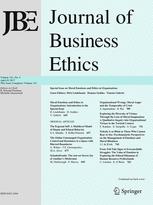
Institutions and Corporate Reputation: Evidence from Public Debt Markets
in: Journal of Business Ethics, No. 1, 2023
Abstract
Using data from China’s public debt markets, we study the value of corporate reputation and how it interacts with legal and cultural forces to assure accountability. Exploring lawsuits that change corporate reputation, we find that firms involved in lawsuits experience a decrease in bond values and a tightening of borrowing terms. Using the heterogeneities in legal and social capital environments across Chinese provinces, we find the effects are more pronounced for private firms, firms headquartered in provinces with low legal protections, and firms headquartered in provinces with high social capital. The results show that lawsuits that allege misconduct are associated with reputational penalties and that such penalties serve as substitutes for legal protections and as complements to cultural forces to provide ex post accountability and motivate ex ante trust.

COVID-19 Pandemic and Global Corporate CDS Spreads
in: Journal of Banking and Finance, February 2023
Abstract
We examine the impact of the COVID-19 pandemic on the credit risk of companies around the world. We find that increased infection rates affect firms more adversely as reflected by the wider increase in their credit default swap (CDS) spreads if they are larger, more leveraged, closer to default, have worse governance and more limited stakeholder engagement, and operate in more highly exposed industries. We observe that country-level determinants such as GDP, political stability, foreign direct investment, and commitment to crisis management (income support, health and lockdown policies) also affect the sensitivity of CDS spreads to COVID-19 infection rates. A negative amplification effect exists for firms with high default probability in countries with fiscal constraints. A direct comparison between global CDS and stock markets reveals that the CDS market prices in a distinct set of corporate traits and government policies in pandemic times.
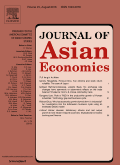
Trust and Contracting with Foreign Banks: Evidence from China
in: Journal of Asian Economics, December 2022
Abstract
We empirically investigate whether firms doing business in regions characterized as having high social trust receive preferential treatment on loan contractual terms by foreign banks. Tracing cross-border syndicated lending activities in China, we document that firms located in provinces with higher social trust scores obtain significantly low costs of bank loans and experience less stringent collateral requirement. To address the potential endogeneity issues, we adopt an instrumental variable approach and a two-sided matching model, and report consistent results. We also estimate a system of three equations through three-stage-least square estimator to accommodate the joint determination of price and non-price terms in loan contracts. In addition, we find that the effect of social trust on cost of bank loans is more prominent for firms located in provinces with relatively less developed formal institutions.
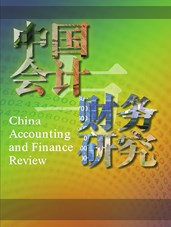
Hedge Fund Activism and Internal Control Weaknesses
in: China Accounting and Finance Review, No. 4, 2022
Abstract
Purpose: The aim of the paper is to investigate the associations between hedge fund activism and corporate internal control weaknesses. Design/methodology/approach: In this paper, the authors identify hedge fund activism events using 13D filings and news search. After matching with internal control related information from Audit Analytics, the authors utilize ordinary least square (OLS) and propensity score matching (PSM) to analyze the data. Findings: The authors find that after hedge fund activism, target firms report additional internal control weaknesses, and these identified internal control weaknesses are remediated in subsequent years, leading to better financial-reporting quality. Originality/value: The findings indicate that both managers and activists have incentives to develop a stronger internal control environment after targeting.
Working Papers
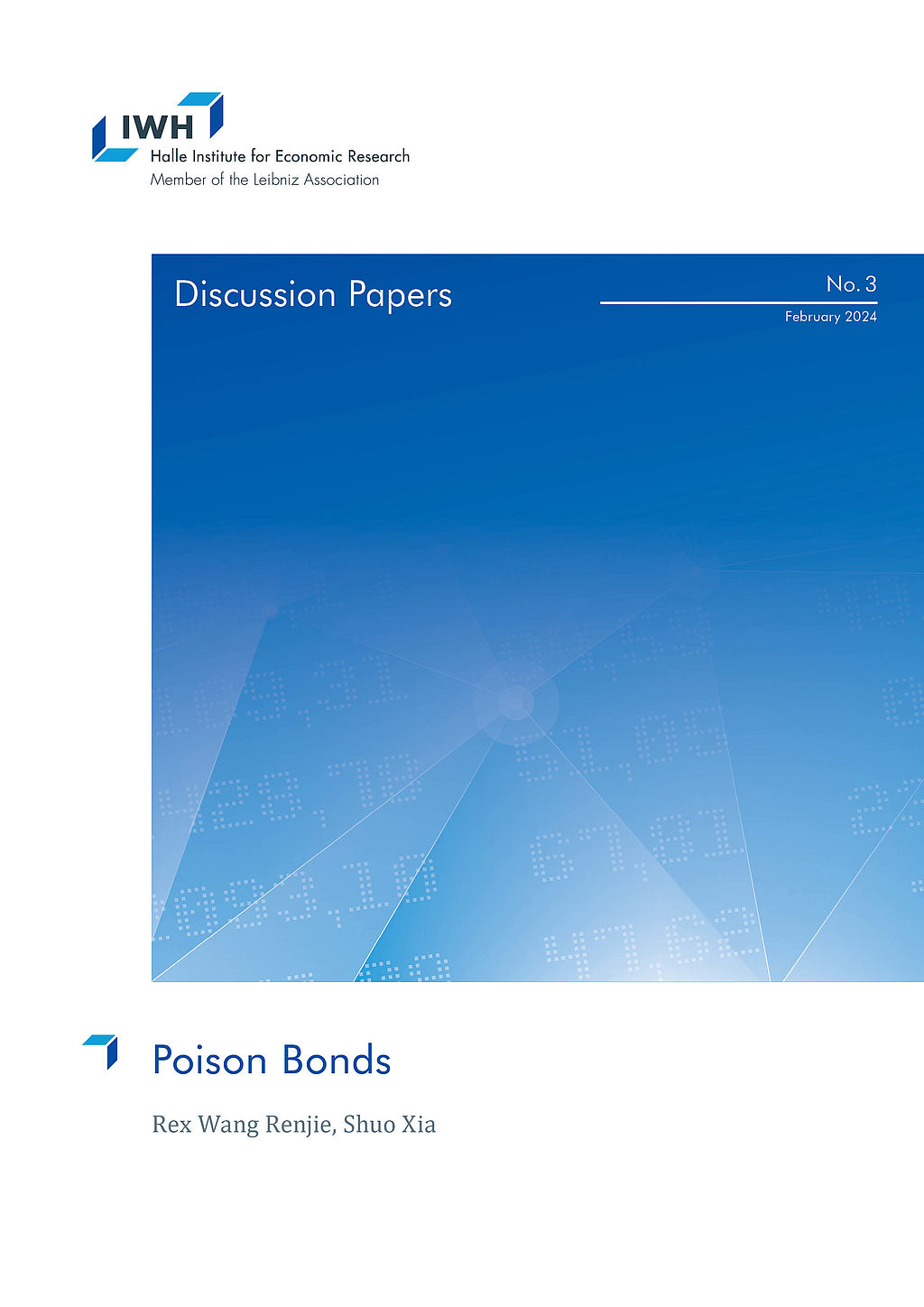
Poison Bonds
in: IWH Discussion Papers, No. 3, 2024
Abstract
This paper documents the rise of “poison bonds”, which are corporate bonds that allow bondholders to demand immediate repayment in a change-of-control event. The share of poison bonds among new issues has grown substantially in recent years, from below 20% in the 90s to over 60% since mid-2000s. This increase is predominantly driven by investment-grade issues. We provide causal evidence that the pressure to eliminate poison pills has led firms to issue poison bonds as an alternative. Our analysis suggests that this practice entrenches incumbent managers and destroys shareholder value. Holding a portfolio of firms that remove poison pills but promptly issue poison bonds results in negative abnormal returns of −7.3% per year. Our findings have important implications for the agency theory of debt: (i) more debt may not discipline the management; and (ii) even without financial distress, managerial entrenchment can lead to agency conflicts between shareholders and creditors.
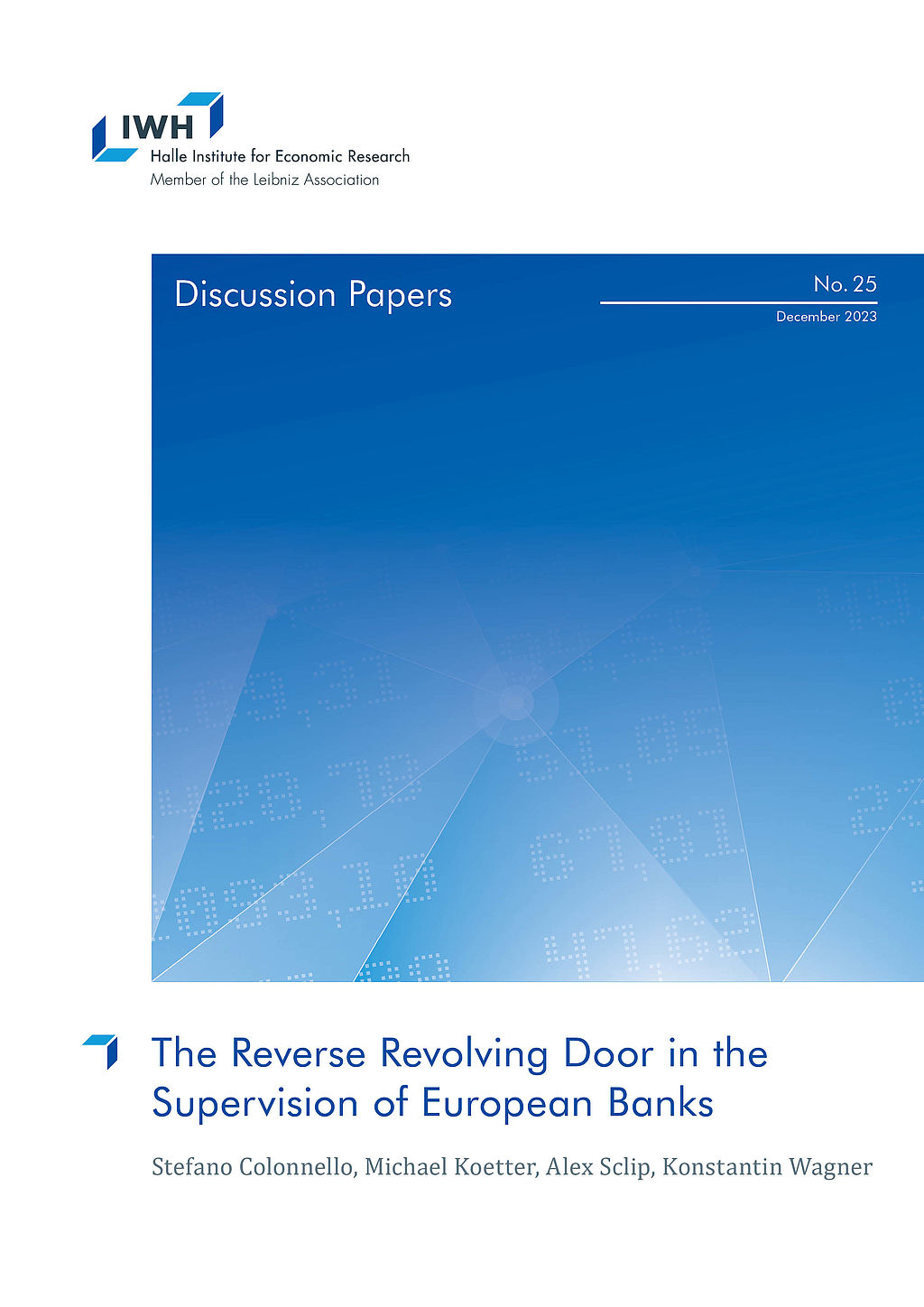
The Reverse Revolving Door in the Supervision of European Banks
in: IWH Discussion Papers, No. 25, 2023
Abstract
We show that around one third of executive directors on the boards of national supervisory authorities (NSA) in European banking have an employment history in the financial industry. The appointment of executives without a finance background associates with negative valuation effects. Appointments of former bankers, in turn, spark positive stock market reactions. This „proximity premium“ of supervised banks is a more likely driver of positive valuation effects than superior financial expertise or intrinsic skills of former executives from the financial industry. Prior to the inception of the European Single Supervisory Mechanism, the presence of former financial industry executives on the board of NSA associates with lower regulatory capital and faster growth of banks, pointing to a more lenient supervisory style.
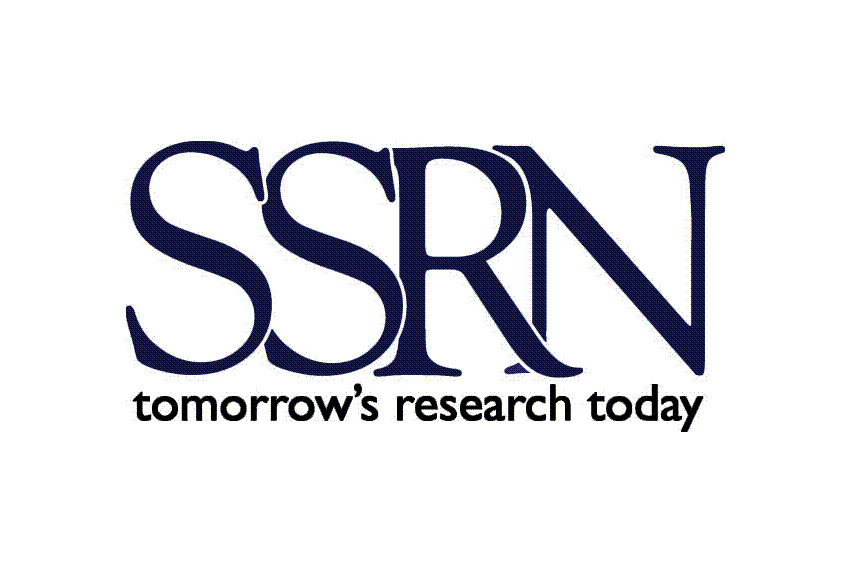
Poison Bonds
in: SSRN Discussion Paper, 2023
Abstract
This paper documents the rise of "poison bonds", which are corporate bonds that allow bondholders to demand immediate repayment in a change-of-control event. The share of poison bonds among new issues has grown substantially in recent years, from below 20% in the 90s to over 60% after 2005. This increase is predominantly driven by investment-grade issues. We provide causal evidence that the pressure to eliminate poison pills has led firms to issue poison bonds as an alternative. Further analyses suggest that this practice entrenches incumbent managers, coincidentally benefits bondholders, but destroys shareholder value. Holding a portfolio of firms that remove poison pills but promptly issue poison bonds results in negative abnormal returns of -7.3% per year. Our findings have important implications for understanding the agency benefits and costs of debt: (1) more debt does not necessarily discipline the management; and (2) even without financial distress, managerial entrenchment can lead to conflicts between shareholders and creditors.
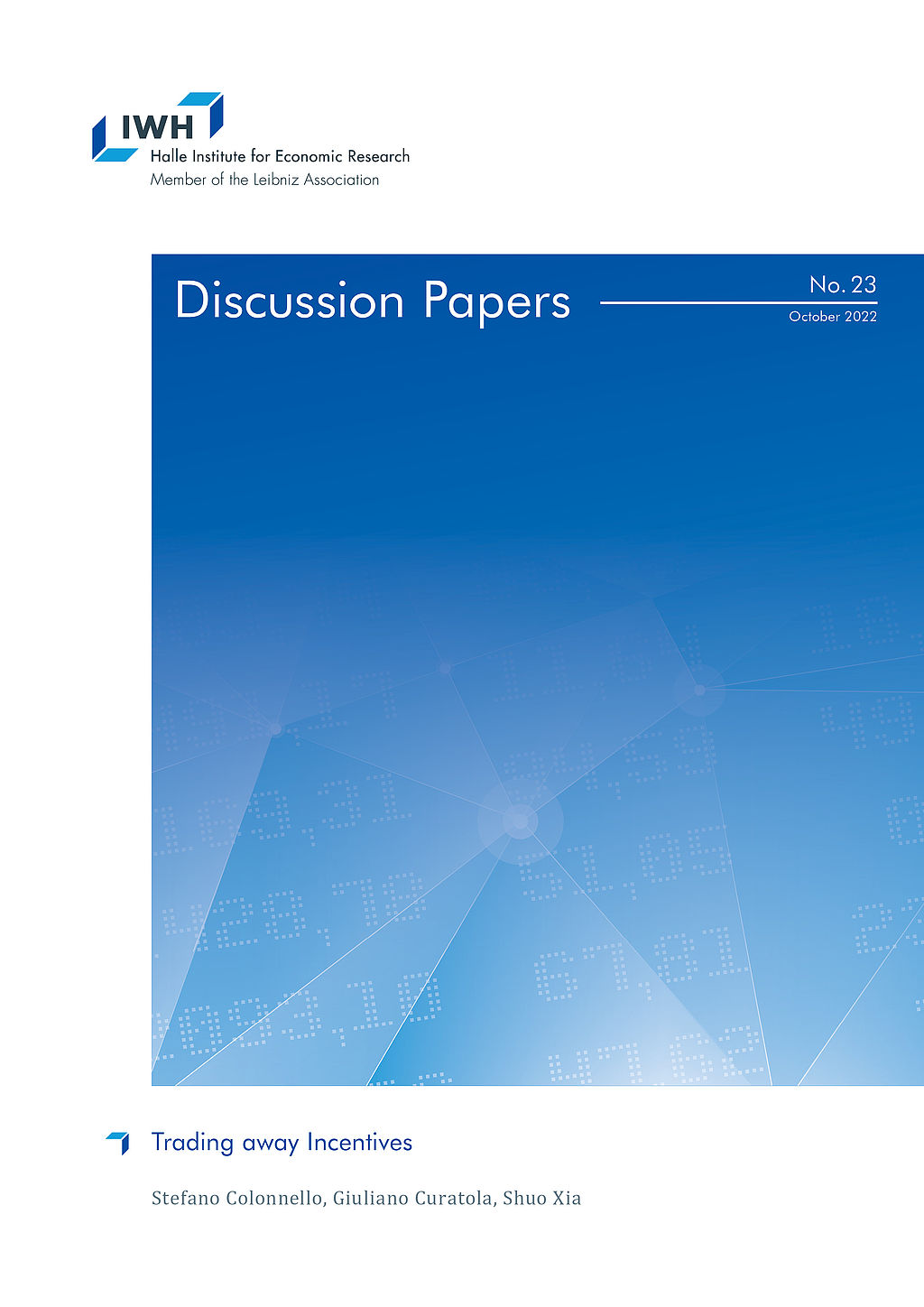
Trading away Incentives
in: IWH Discussion Papers, No. 23, 2022
Abstract
Equity pay has been the primary component of managerial compensation packages at US public firms since the early 1990s. Using a comprehensive sample of top executives from 1992-2020, we estimate to what extent they trade firm equity held in their portfolios to neutralize increments in ownership due to annual equity pay. Executives accommodate ownership increases linked to options awards. Conversely, increases in stock holdings linked to option exercises and restricted stock grants are largely neutralized through comparable sales of unrestricted shares. Variation in stock trading responses across executives hardly appears to respond to diversification motives. From a theoretical standpoint, these results challenge (i) the common, generally implicit assumption that managers cannot undo their incentive packages, (ii) the standard modeling practice of treating different equity pay items homogeneously, and (iii) the often taken for granted crucial role of diversification motives in managers’ portfolio choices.
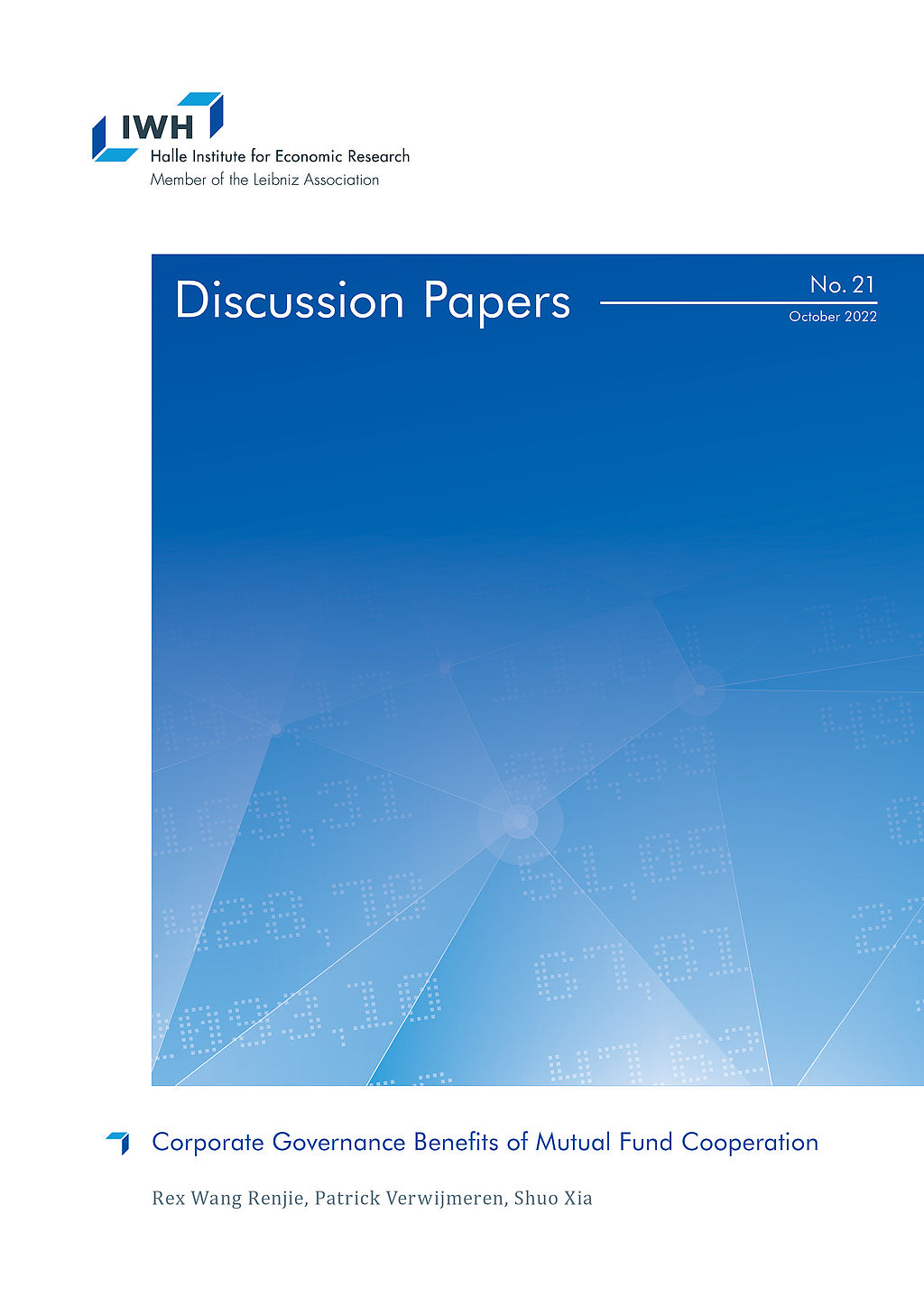
Corporate Governance Benefits of Mutual Fund Cooperation
in: IWH Discussion Papers, No. 21, 2022
Abstract
Mutual fund families increasingly hold bonds and stocks from the same firm. We study the implications of such dual holdings for corporate governance and firm decision-making. We present evidence that dual ownership allows financially distressed firms to increase investments and to refinance by issuing bonds with lower yields and fewer restrictive covenants. As such, dual ownership reduces shareholder-creditor conflicts, especially when families encourage cooperation among their managers. Overall, our results suggest that mutual fund families internalize the shareholder-creditor agency conflicts of their portfolio companies, highlighting the positive governance externalities of intra-family cooperation.









